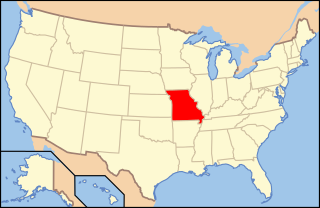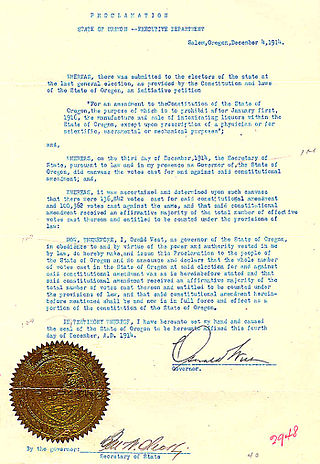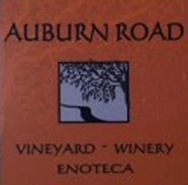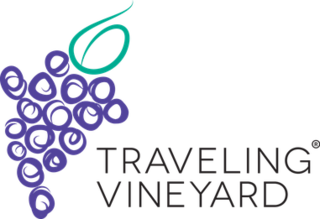Wine shipping laws in the United States differ between states and are controlled by state law. While most alcohol sales are controlled by the three-tier system, nearly all states now permit some form of direct shipping of wine from wineries to consumers. Most states require wineries to pay for a permit in order to ship to consumers in the state, resulting in a winery-dependent slate of states that it may ship to. Direct wine shipments are also typically subject to sales and/or excise taxes. Most states also limit the quantity of wine that may be purchased monthly or annually, usually in terms of the number of nine-liter cases of wine that may be shipped, though most consumers are unaffected by these limits. Shipment of wine to dry areas is illegal.
In the 2005 case Granholm v. Heald , the Supreme Court ruled that states must regulate direct shipment of wines to consumers from in-state and out-of-state wineries in the same way, either allowing or banning both. Since that ruling, more states gradually began to allow direct shipment of wine from wineries to consumers. Some states also allow direct shipment of wine from out-of-state retailers to consumers.
Direct shipments of wine are generally prohibited in Alabama. However, individual consumers may receive such shipments by obtaining prior written approval from the Alcoholic Beverage Control Board. The shipment must be consigned, with freight charges prepaid, directly to the individual in care of an ABC store.
Wine can be shipped directly to consumers in Alaska, except in certain dry communities.
Consumers in Arizona are limited to 12 cases shipped directly to them annually from wineries.
Direct shipment of wine is prohibited in Arkansas for off-site sales; consumers may place on-site orders for shipment at wineries.
Direct shipment of wine to consumers in California is allowed.
Direct shipment of wine to consumers in Colorado is allowed.
Consumers in Connecticut are limited to 2 cases per person shipped directly to them every 2 months.
Direct shipment of wine is prohibited in Delaware for off-site sales; consumers may place on-site orders for shipment at wineries.
Consumers in the District of Columbia are limited to 1 case per person shipped directly to them per month.
Direct shipment to consumers in Florida is permitted, except in certain dry counties.
Consumers in Georgia are limited to 12 cases shipped directly to them annually.
Consumers in Hawaii are limited to 6 cases shipped directly to them annually.
Consumers in Idaho are limited to 24 cases shipped directly to them annually.
Consumers in Illinois are limited to 12 cases shipped directly to them annually.
Consumers in Indiana are limited to 24 cases shipped directly to them annually.
Direct shipment of wine from wineries to consumers in Iowa is allowed.
Consumers in Kansas are limited to 12 cases shipped directly to them annually from wineries.
Carriers refuse to ship wine directly to Kentucky consumers, due to the difficulty of distinguishing dry areas from "wet" ones. Shipping wine to dry areas in Kentucky is a felony offense. [3]
Direct shipment of wine to consumers in Louisiana is allowed, but only for wines that are not distributed by any wholesaler in the state.
Consumers in Maine are limited to 12 cases shipped directly to them annually from wineries.
Consumers in Maryland are limited to 18 cases shipped directly to them annually from wineries.
On January 14, 2010, the case of FWC v. Jenkins in Boston struck down limits on wine shipments to Massachusetts. [4] Despite that ruling, wine shipments to Massachusetts were largely impossible until January 1, 2015, when direct shipping from wineries to consumers in Massachusetts of up to 12 cases per year became allowed by law. [5] [6]
Direct shipment of wine from wineries to consumers in Michigan is allowed.
Consumers in Minnesota are limited to 2 cases shipped directly to them annually.
Direct shipment of wine is prohibited in Mississippi.
Consumers in Missouri are limited to 2 cases shipped directly to them per month.
Consumers in Montana are limited to 18 cases shipped directly to them annually.
Consumers in Nebraska are limited to 12 cases shipped directly to them annually.
Consumers in Nevada are limited to 12 cases shipped directly to them annually.
Consumers in New Hampshire are limited to 12 cases shipped directly to them annually.
Only small wineries that make less than 250,000 gallons of wine annually are allowed to ship up to 12 cases of wine per year to consumers in New Jersey.
Consumers in New Mexico are limited to 2 cases per person shipped directly to them per month.
Consumers in New York are limited to 36 cases per person shipped directly to them annually.
Consumers in North Carolina are limited to 2 cases per person shipped directly to them per month.
Consumers in North Dakota are limited to 3 cases shipped directly per person per month.
Only small wineries that make less than 250,000 gallons of wine annually are allowed to ship up to 24 cases of wine per year to consumers in Ohio.
Consumers in Oklahoma are limited to 6 cases per person shipped directly to them annually.
Consumers in Oregon are limited to 2 cases shipped directly per person per month.
Consumers in Pennsylvania are limited to 36 cases per person shipped directly to them annually by a wine producer licensed by the Pennsylvania Liquor Control Board as a direct wine shipper.
Direct shipment of wine is prohibited in Rhode Island for off-site sales; consumers may place on-site orders for shipment at wineries.
Consumers in South Carolina are limited to 2 cases per person shipped directly to them per month.
Consumers in South Dakota are limited to 12 cases shipped directly to them annually.
Wineries may ship no more than one case per month, nor three per year, directly to an individual consumer in Tennessee.
Consumers in Texas are limited to nine gallons monthly and no more than 36 gallons annually shipped directly per person.
Direct shipment of wine to consumers in Utah is prohibited and classified as a felony. Adult residents returning from a foreign country are permitted to bring no more than one quart of wine with them. Individuals moving to the state are not limited to the amount of wine they may bring, as long as the taxes have been paid and cleared by the Department of Alcoholic Beverage Control. [7]
Consumers in Vermont are limited to 12 cases shipped directly to them annually.
Consumers in Virginia are limited to 2 cases shipped directly to them per month.
Direct shipment of wine to consumers in Washington is allowed.
Consumers in West Virginia are limited to 2 cases per person shipped directly to them per month, but wine may not be delivered in dry areas.
Consumers in Wisconsin are limited to 12 cases shipped directly to them annually.
Consumers in Wyoming are limited to 4 cases shipped directly to them in any 12-month period.
The three-tier system of alcohol distribution is the system for distributing alcoholic beverages set up in the United States after the repeal of Prohibition. The three tiers are importers or producers; distributors; and retailers. The basic structure of the system is that producers can sell their products only to wholesale distributors who then sell to retailers, and only retailers may sell to consumers. Producers include brewers, wine makers, distillers and importers. The three-tier system is intended to prohibit tied houses and prevent "disorderly marketing conditions."
Granholm v. Heald, 544 U.S. 460 (2005), was a court case decided by the Supreme Court of the United States in a 5–4 decision that ruled that laws in New York and Michigan that permitted in-state wineries to ship wine directly to consumers but prohibited out-of-state wineries from doing the same were unconstitutional. The case was unusual because the arguments centered on the rarely-invoked Twenty-First Amendment to the Constitution, ratified in 1933, which ended Prohibition in the United States.
Wine has been produced in the United States since the 1500s, with the first widespread production beginning in New Mexico in 1628. As of 2023, wine production is undertaken in all fifty states, with California producing 80.8% of all US wine. The North American continent is home to several native species of grape, including Vitis labrusca, Vitis riparia, Vitis rotundifolia, and Vitis vulpina, but the wine-making industry is based almost entirely on the cultivation of the European Vitis vinifera, which was introduced by European settlers. With more than 1,100,000 acres (4,500 km2) under vine, the United States is the fourth-largest wine producing country in the world, after Italy, Spain, and France.

Michigan wine refers to any wine that is made in the state of Michigan in the United States. As of 2020, there were 3,375 acres (1,366 ha) under wine-grape cultivation and over 200 commercial wineries in Michigan, producing 3 million US gallons (11,000,000 L) of wine. According to another count there were 112 operating wineries in Michigan in 2007.

The production of wine in New Jersey has increased significantly in the last thirty years with the opening of new wineries. Beginning in 1981, the state legislature relaxed Prohibition-era restrictions and crafted new laws to facilitate the growth of the industry and provide new opportunities for winery licenses. Today, New Jersey wineries are crafting wines that have earned recognition for their quality from critics, industry leaders, and in national and international competitions. As of 2019, New Jersey currently has 51 licensed and operating wineries with several more prospective wineries in various stages of development.

The alcohol laws of Missouri are among the most permissive in the United States. Missouri is known throughout the Midwest for its largely laissez-faire approach to alcohol regulation, in sharp contrast to the very strict alcohol laws of some of its neighbors, like Kansas and Oklahoma.

The alcohol laws of Kansas are among the strictest in the United States, in sharp contrast to its neighboring state of Missouri, and similar to its other neighboring state of Oklahoma. Legislation is enforced by the Kansas Division of Alcoholic Beverage Control.

The U.S. state of Oregon has an extensive history of laws regulating the sale and consumption of alcoholic beverages, dating back to 1844. It has been an alcoholic beverage control state, with the Oregon Liquor and Cannabis Commission holding a monopoly over the sale of all distilled beverages, since Prohibition. Today, there are thriving industries producing beer, wine, and liquor in the state. Alcohol may be purchased between 7 a.m. and 2:30 a.m for consumption at the premise it was sold at, or between 6 a.m. and 2:30 a.m. if it is bought and taken off premise. In 2020, Oregon began allowing the sale of alcohol via home delivery services. As of 2007, consumption of spirits was on the rise while beer consumption held steady. That same year, 11% of beer sold in Oregon was brewed in-state, the highest figure in the United States.

The state laws governing alcoholic beverages in New Jersey are among the most complex in the United States, with many peculiarities not found in other states' laws. They provide for 29 distinct liquor licenses granted to manufacturers, wholesalers, retailers, and for the public warehousing and transport of alcoholic drinks. General authority for the statutory and regulatory control of alcoholic drinks rests with the state government, particularly the Division of Alcoholic Beverage Control overseen by the state's Attorney General.

The production of distilled spirits in New Jersey has not been a large industry in the state. Strict alcoholic beverage control laws in place during and after Prohibition (1919–1933) prevented the industry from growing for almost a century. In 2013, the state passed a law creating a craft distillery license. and issued the first new distillery license since Prohibition to Jersey Artisan Distilling.

Auburn Road Vineyards is a winery in Pilesgrove Township in Salem County, New Jersey. The vineyard was first planted in 2004, and opened to the public in 2007. Auburn Road has 19 acres of grapes under cultivation, and produces 4,200 cases of wine per year. The winery is named for road near where it is located.

Villa Milagro Vineyards is a winery in the Finesville section of Pohatcong Township in Warren County, New Jersey. The vineyard was first planted in 2003, and opened to the public in 2007. Villa Milagro has 11 acres of grapes under cultivation, and produces 1,500 cases of wine per year. The winery is named for the Spanish words villa milagro which mean "house of miracles," because of the green mountain scenery of the farm.

Bellview Winery is a winery in the Landisville section of Buena in Atlantic County, New Jersey. A family produce farm since 1914, the vineyard was first planted in 2000, and opened to the public in 2001. Bellview has 50 acres of grapes under cultivation, and produces 9,000 cases of wine per year. The farm was named by Angelo and Maria Quarella and is of Italian origin.

Plagido's Winery is a winery located in Hammonton in Atlantic County, New Jersey. A family produce farm since the late 19th century, the vineyard was first planted in 1999, and opened to the public in 2007. The winery was originally known as "Placido's Winery," but the name was changed in 2008 because of winery with a similar name exists in Tuscany. Plagido has 14 acres of grapes under cultivation, and produces 4,200 cases of wine per year. The winery is named after the owner's great-grandfather, who immigrated from Italy in the late 19th century, and started a farm in Hammonton.
DeMastro Vineyards is a winery in the Vincentown section of Southampton in Burlington County, New Jersey. DeMastro has 31 acres of grapes under cultivation, and produces 7,000 cases of wine per year. The winery was incorporated in 1990. The winery's name is an amalgamation of the owners' surnames.

DiBella Winery is a winery in Woolwich Township in Gloucester County, New Jersey. A family produce and grain farm since 1925, the vineyard was first planted in 2002. DiBella began sales of its wine in 2010, and opened a tasting room in 2012. DiBella Winery has 4 acres of grapes under cultivation, and produces 250 cases of wine per year. The winery is named after the family that owns it.

DiMatteo Vineyards is a winery located in Hammonton in Atlantic County, New Jersey. Formerly a family produce farm, the vineyard was first planted in 2000, and opened to the public in 2002. In 2010, the winery moved its headquarters to a new location in Hammonton. DiMatteo has 14 acres of grapes under cultivation, and produces 1,500 cases of wine per year. The winery is named after the family that owns it.

Tomasello Winery is a winery located in Hammonton in Atlantic County, New Jersey. Tomasello is the second-oldest active winery in the state, after Renault Winery. The vineyard was first planted in 1888, and opened to the public in 1933 after the end of Prohibition. Tomasello is one of the largest winegrowers in New Jersey, having 70 acres of grapes under cultivation, and producing 65,000 cases of wine per year. Although the winery is in Hammonton, most of the grapes are grown on three vineyards in the neighboring Winslow Township in Camden County. The winery is named after the family that owns it.
There are few restrictions on the sale and consumption of alcohol in Nevada except for age.

Traveling Vineyard is an American multi-level marketing company based in Ipswich, Massachusetts, that sells wine. The company was founded in 2001, and in 2010 it was purchased by Richard Libby and restructured.